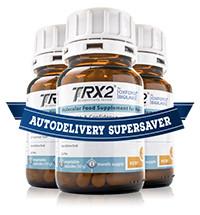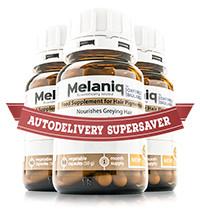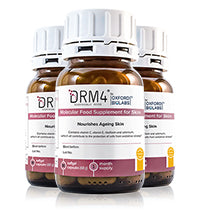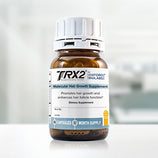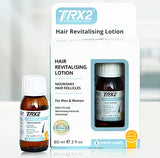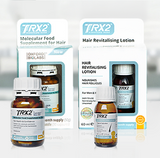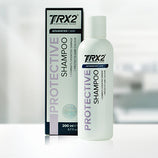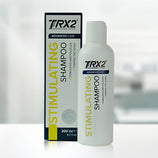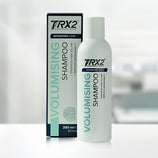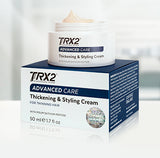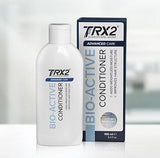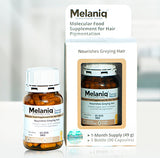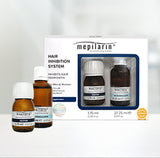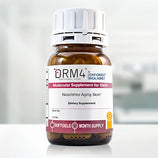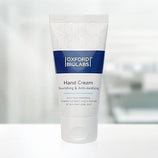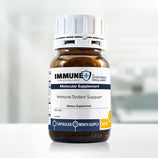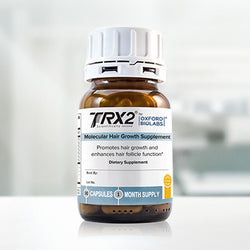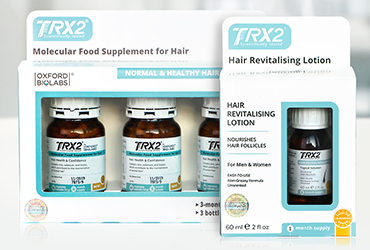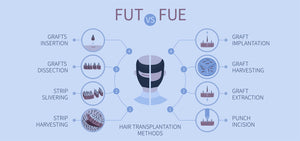Is Niacin the next big thing for hair growth?
Haven’t found salvation in hair loss products? Time to look in the fridge and medicine cabinet. That’s because a poor diet can destroy one’s chances of healthy hair. Factor in genetics, environmental conditions and underlying medical problems, and the negative effects for hair increase many times over. One of the nutrients other hair growth regimens don’t include is Niacin. The use of Niacin for hair growth is scientifically backed by hard evidence, making it a wonder vitamins for hair.
What is niacin?
The name “niacin” was derived from the phrase “nicotinic acid + vitamin.” It actually refers to a family of organic compounds that all possess the same biochemical activity. Other names for Niacin include Vitamin B3, Vitamin PP, nicotinic acid and nicotinamide.
Niacin is a water-soluble vitamin and member of the B-vitamin family. It includes several compounds like nicotinic acid and nicotinamide. Overall, B vitamins are famous for having positive effects on the nervous system and in activating energy reserves in the body. Every B vitamin, including Biotin or Folic acid, serves its own specific purpose, and Niacin is no exception. Niacin’s specialty lies in releasing energy from the metabolism of glucose, fat and alcohol.
Which foods contain Niacin?
Niacin is found in many foods including: beef, chicken, fish, nuts, fortified cereals, mushrooms, etc. Vegans and vegetarians are susceptible to niacin deficiency if they don’t The most common causes of severe Niacin deficiency are malnutrition and alcoholism. Symptoms of deficiency include:
- Skin lesions
- Fatigue
- Depression
- Anemia
- Nausea
- Headaches.
Niacin and grey hair
Greying hair, like hair loss, has multiple causal factors but the underlying reason hair turns grey is diminishing melanocyte function. Melanocytes are the cells that produce melanin in hair, and a surprisingly small amount of active melanocytes are required to keep one’s natural hair colour. To sustain pigment production, numerous nutrients, elements, and reactions are required and high-quality natural supplements can provide invaluable vitamins, minerals, and other components to support and maintain colour.
Scientists have not looked into a link between niacin and greying hair, but the research team at Oxford Biolabs® dug deep and found two possible correlations. As already discussed, Niacin is a proven anti-oxidant and is active in lipid metabolism.
It turns out that oxidative stress (the accumulation of free radicals) is directly involved in increasing the severity and onset of greying hair. And it just so happens that niacin and its related compounds have been shown to be effective anti-oxidants for the specific free radical species involved in the ageing of hair. Moreover, Niacin prevents the DNA damage inflicted by those same anti-oxidants for an additional positive effect.
The second way Niacin can help prevent grey hair might be surprising to hear, but the fact that Niacin is able to reduce bad cholesterol and raise good cholesterol may play a role in greying hair. For many years, it has been known by the medical community that Niacin is a powerful anti-cholesterol medication. In August 2017, researchers published a study demonstrating that the degree of greying hair was a marker for coronary artery disease.
Coronary artery disease is caused by atherosclerosis, a disease which involves the build-up of plaque inside arteries. A well-known risk factor for atherosclerosis is high cholesterol so in this case, Niacin could potentially be beneficial for not only lowering the risk of cardiovascular diseases, but also preventing grey hair.
Does niacin help hair growth?
Niacin increases and promotes hair growth in several interesting ways. Apart from increasing blood, and subsequently, nutrient flow in hair follicles, Niacin also facilitates the removal of waste products from skin. This means that Niacin creates a double advantage by bringing in good nutrients, and taking out bad waste products.
It is used for treating high cholesterol, as it is active in fat deposition, and metabolism. Because high cholesterol has been linked to hair loss, and niacin lowers bad cholesterol and raises good cholesterol, it improves hair growth and makes the heart healthier at the same time.
Niacin is included in many nutritional supplements for hair, skin, and nail health. Recent evidence has shed light on niacin as a topical solution for treating hair loss. The study demonstrated a significant increase in hair growth, highlighting the benefits of niacin in promoting thick, full hair for women experiencing hair loss.
A study published in the Journal of British Dermatology, showed that male pattern baldness is more severe when patients have metabolic syndrome, which implicates metabolic issues with hair thinning and loss. This underlines the fact that a possible (positive) side effect of treating high cholesterol could be a fuller head of hair.
Metabolic syndrome is made up of 5 main diseases. To be classified as metabolic syndrome, one must have at least 3 out of 5.
- High abdominal fat (obesity)
- High blood pressure
- Elevated glucose levels
- High “bad” cholesterol
- Low “good” cholesterol
How much Niacin should be taken for hair growth?
The daily recommendations for niacin are:
- 16 mg for men
- 14 mg for women
- 18 mg during pregnancy
- 17 mg during lactation
Conclusion
Niacin is an important nutrient for hair growth. It supplies and supports blood flow, acts as an anti-oxidant, and science shows it helps hair immensely.
Niacin is only one of the essential vitamins that is included in TRX2®. Together with Biotin and other powerful nutrients that work in perfect synergy, TRX2® provides an elegant hair support regimen. Hair loss can be addressed, it’s a matter of knowing the cause and taking the necessary steps to improve well-being.
